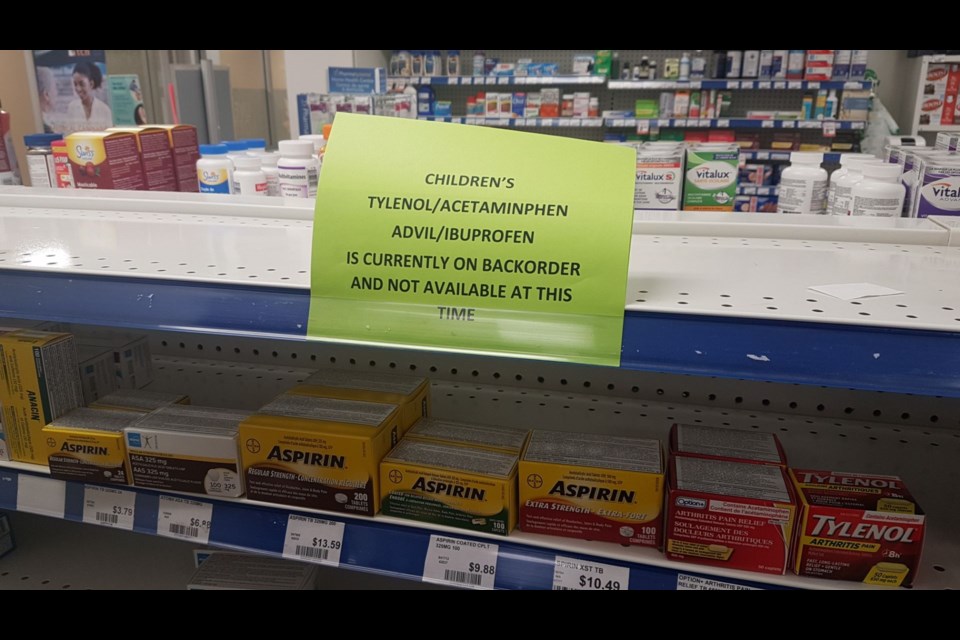THUNDER BAY — As an emergency room doctor for many years, Marcus Powlowski has seen chronic shortages of medication that never create news headlines.
Patients and their families remain oblivious to shortages, he says, while hospitals try to work through these problems by using alternative drugs.
The Liberal MP for Thunder Bay-Rainy River believes it's an important issue and that there are steps the federal government should take to help ensure a constant stock of medicine in hospitals.
But he's not blaming Health Canada for the current shortage of acetaminophen and ibuprofen for children.
"It's something for retailers like Shoppers or Walmart," he said. "But free enterprise wasn't getting us to where we wanted. The market wasn't working really well here."
In an Wednesday interview, Powlowski said the vast majority of these medications are purchased over-the-counter, and the government typically doesn't have a role in managing the market.
In this case, however, it's responded by easing the regulatory process and arranging for emergency shipments of children's acetaminophen to retail outlets and pharmacies from the U.S. and Australia. It has also approved the importation of children's ibuprofen and acetaminophen for use in hospitals.
Powlowski said the shortage is the result of "the perfect kind of storm."
"They were predicting that come this fall there would be a lot of mostly viral illnesses going around. That usually happens every year. The pharmaceutical companies stock up in the summer, waiting for the surge," he said.
"But this year there was a spike of respiratory infections, not just COVID but also RSV and influenza that occurred earlier in the summer. So when the pharmacies were trying to stock up, it was selling out just as quickly as it came in. Now the demand is apparently three or four times what it usually is."
This week, at a hearing with the parliamentary health committee, Health Canada officials were criticized by some MPs for not anticipating the shortage and responding more quickly.
They said that when they became aware of a shortage of children's medication in April, they told suppliers they would be permitted to import foreign supplies.
But the manufacturers, they said, felt they could deal with the situation by increasing their production rates.
It wasn't until late summer that it became clear this wasn't enough to keep up with the demand.
Powlowski said the problem was exacerbated by news reports about a looming shortage, resulting in a rush by consumers to buy everything on the shelf.
"When it came to us as a government, we reacted. It wasn't something that was totally predictable."
He said what's being overlooked by some people is that when everyone was wearing masks and practising social distancing, children weren't getting infections earlier in the year.
But now, many of them are getting are catching "two years worth" all at the same time.
"In the normal course of events, kids get colds and the sniffles all the time, and build up an immunity. But almost no one had those things because of all the COVID precautions. Suddenly, we started dropping those, and respiratory infections go around, and there's no immunity."
Despite linking the absence of COVID precautions to the demand for medication and the current pressure on paediatric intensive care units, Powlowski said he's not advocating a return to the mandatory wearing of masks at this point.
